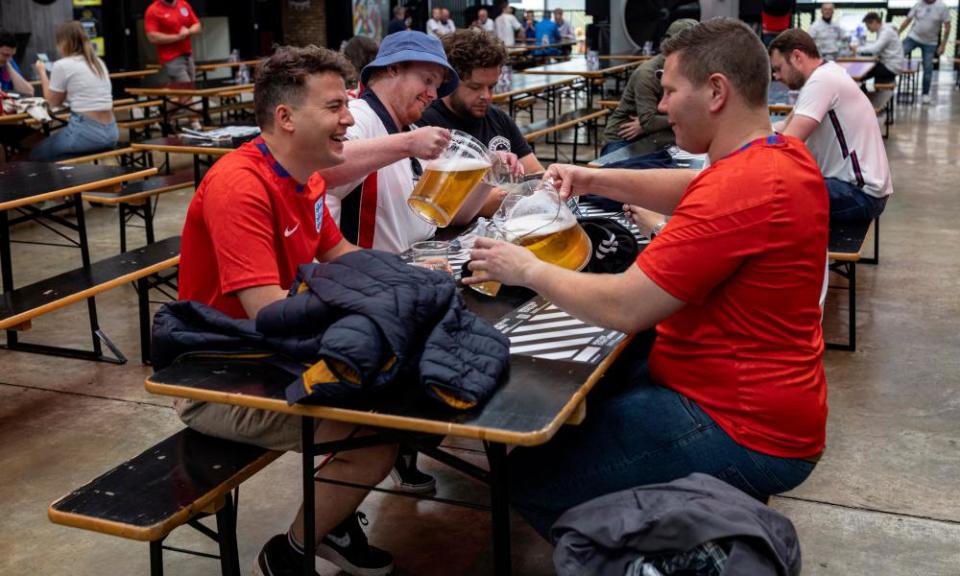Football fans will have to pay £12 for a beer at World Cup in Qatar

Football fans will have to stump up nearly £12 for a beer at the World Cup – despite pre-tournament promises by organisers to keep prices modest. There will also be a limit of four drinks per order amid fears that some supporters could binge drink to excess.
Alcohol is usually restricted in Qatar, a conservative Muslim country, with the few hotel bars allowed typically charging about £12-15 for a beer or glass of wine.
It had been indicated by Nasser al-Khater, the chief executive officer of the 2022 World Cup, that prices for beer in the fan zones and at stadiums would be much lower for fans, with others indicating that it would be about £7-£8 per pint.
This is a World Cup like no other. For the last 12 years the Guardian has been reporting on the issues surrounding Qatar 2022, from corruption and human rights abuses to the treatment of migrant workers and discriminatory laws. The best of our journalism is gathered on our dedicated Qatar: Beyond the Football home page for those who want to go deeper into the issues beyond the pitch.
However it has emerged that a 500ml glass of Budweiser, the only official beer of the World Cup, will cost 50 riyals – about £11.60. A non-alcoholic version will be 30 riyals (£7) and water will cost 10 riyals (£2.30).
Budweiser has stated that fans, who must prove they are over 21 to buy alcohol, will be limited to a “maximum purchase of four Budweiser units per person”. Supporters are also being told to: “Drink wiser, cheer better, hydrate between Buds.”
In a sign that there may have been discussions with Fifa and the Qatari government before the final pricing policy was reached, the company added in its statement: “Budweiser is proud to be served in compliance with the local rules and regulations by Fifa’s appointed concessionaire.”
On Sunday it emerged that Budweiser had been told to move its beer stations to less visible sites outside stadiums, with the New York Times reporting that the order came from Sheikh Jassim bin Hamad bin Khalifa al-Thani, the brother of Qatar’s ruler.

 Yahoo Sport
Yahoo Sport 





































